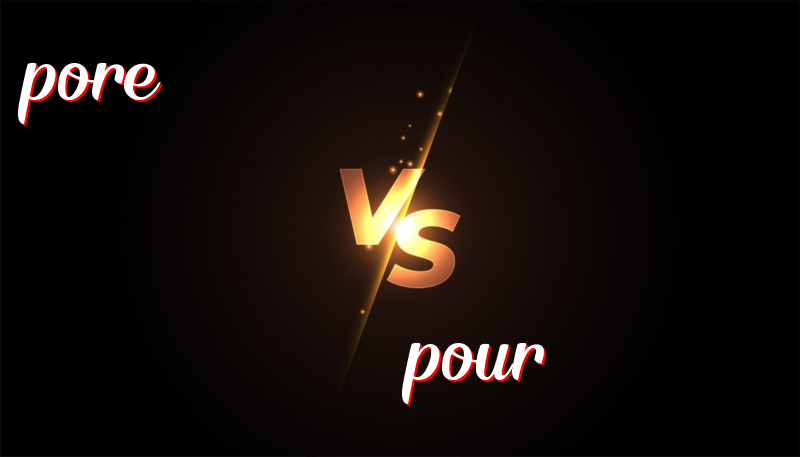英語單詞pore 與 pour的區別
January 01, 2025
仔細分析:Pore 與 Pour 的區別
在學習英語的過程中,理解發音相似但意思不同的單詞至關重要。這篇文章旨在解釋單詞 “pore” 和 “pour” 的差異,並提供其背景、用法和記憶方法。
單詞歷史
Pore 來自古法語 “porer” 意指 “仔細閱讀”。最早使用於英語是在14世紀,用來形容集中注意力來閱讀或仔細檢查某些事物。
Pour 也來自古法語 “pourer”,這個詞在英語中得到了擴展,用來描述將液體從一個容器倒入另一個容器的行動。
用法解析
Pore 的使用
“Pore” 用作動詞,表示花大量時間非常仔細地閱讀或研究。有時也用來描述對於某物的深入研究。
- She would pore over the old manuscripts for hours.
她會花數小時仔細閱讀那些舊手稿。 - The scientist pores over his research data day and night.
科學家日夜仔細研究他的數據。 - Students often pore over their notes before exams.
學生們經常在考試前仔細檢查筆記。 - He pored over the painting, searching for hidden details.
他仔細研究這幅畫,尋找隱藏的細節。 - The detective pored over the evidence to solve the case.
偵探仔細研究證據以破解案件。
Pour 的使用
“Pour” 是一個動詞,描述倒出液體的動作,通常從一容器至另一容器。
- She poured herself a cup of tea.
她給自己倒了一杯茶。 - The waiter poured wine into our glasses.
服務員把酒倒入我們的杯子裡。 - It started to pour rain just as we left the house.
我們剛出門就開始下起了傾盆大雨。 - He poured the sauce over the pasta.
他把醬汁倒在了義大利麵上。 - Water poured out of the broken pipe.
水從破裂的管子裡湧出。
記憶技巧
要記住這兩個詞的區別,可以使用以下的小技巧:
- 記住 “pore” 與 “explore” 中的 “研究” 有關聯,因此涉及研究或認真閱讀。
- 而 “pour” 與 “four” 押韻,想像四杯液體淋下來,這個“倒”的動作很容易記住。
總結
總之,”pore” 是對於材料或某事的細致研究或檢查,而 “pour” 則與液體的流動有關。這兩個詞即使在發音上相似,但用法和含義上卻截然不同。記住這些記憶技巧和用法,可以讓你在英語運用中更加得心應手。

Leave a Reply
You must be logged in to post a comment.